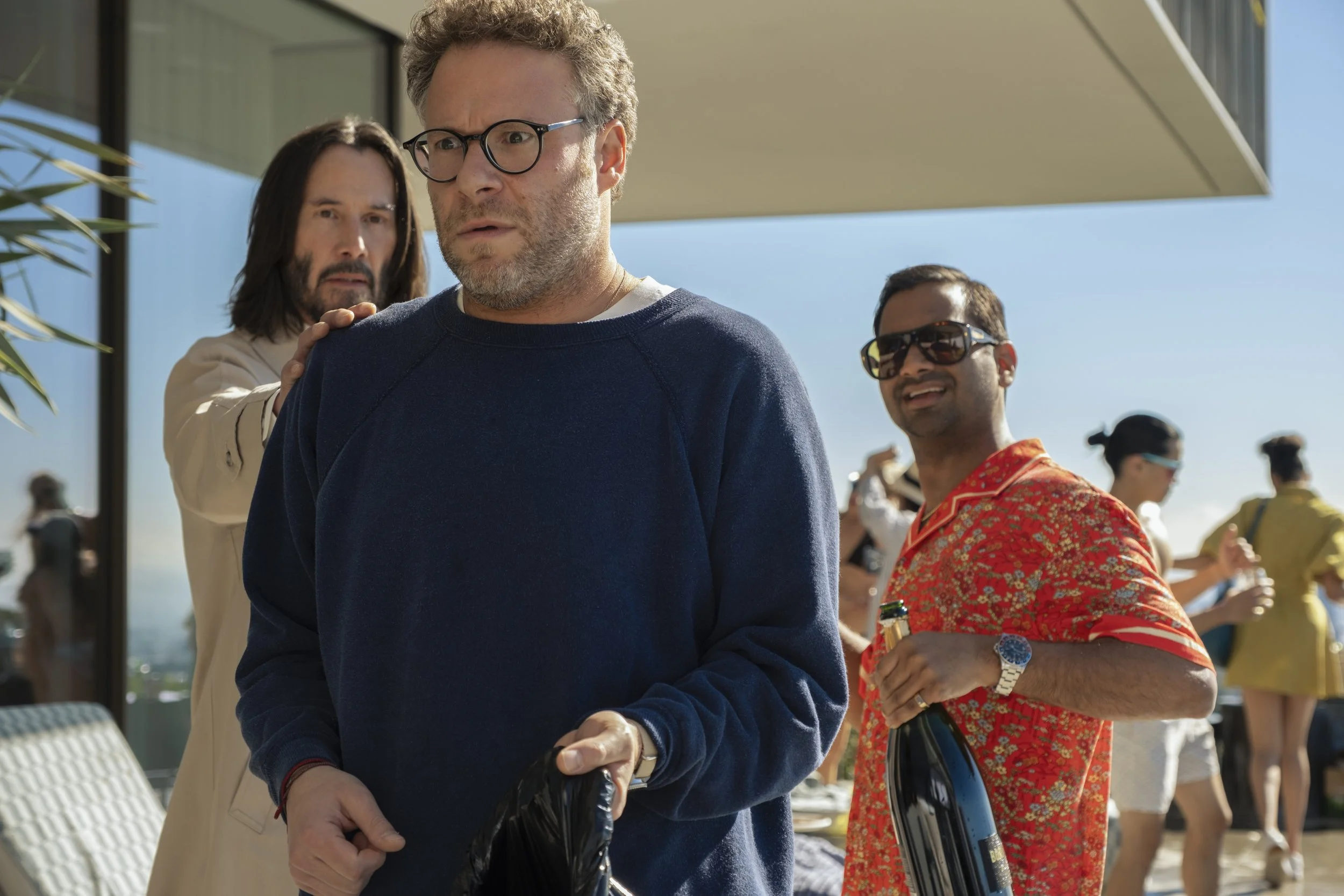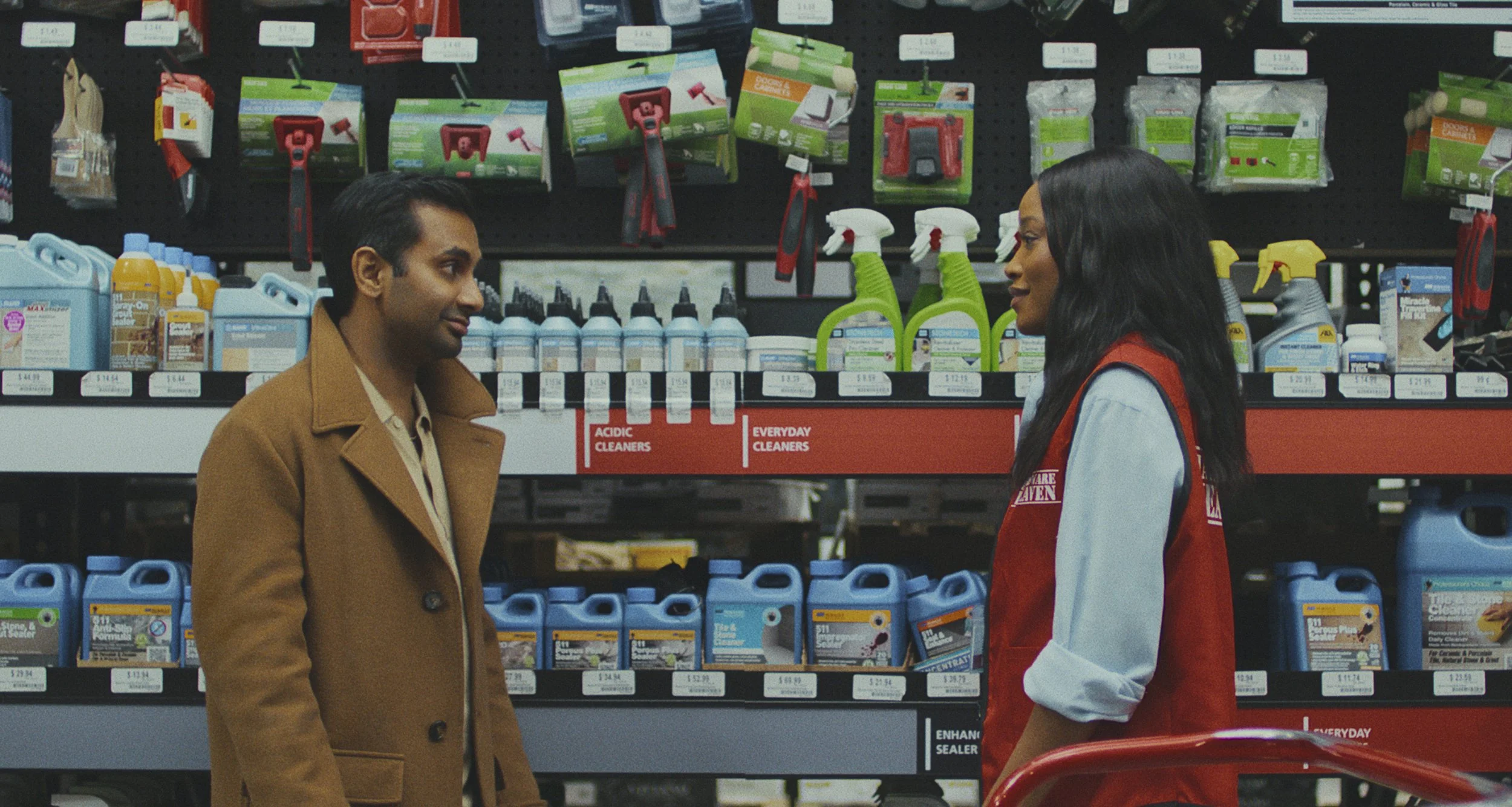Does Aziz Ansari Deserve a Comeback?
The comedian’s cautious return shows that, in 2025, the public is more forgiving — but also less impressed.
Photo: Netflix.
When Aziz Ansari walked the red carpet in September at the Toronto premiere of his new film Good Fortune this fall, it marked more than a return to form. It suggested that a comedian once swept up in the early waves of #MeToo could re-emerge rehabilitated. For Ansari, who has been back in the spotlight and on the stage for much of the past year, this comeback has been years in the making. But it’s proving to be complicated for reasons that have less to do with morality, and more to do with the work itself.
A Clunky “Cancellation”
In January 2018, Ansari — then fresh off the success of the excellent Netflix comedy-drama series Master of None and a Golden Globe win — became one of the first high-profile men accused of sexual misconduct in the #MeToo era. The since-deleted story, published on Babe.net, described a date during which a woman said she felt coerced into sex. It wasn’t a criminal allegation, and it wasn’t at all what the likes of Harvey Weinstein and Matt Lauer were being accused of, but the narrative was messy and vivid enough to ignite a cultural firestorm. It alleged that Ansari was unable to pick up on or ignored non-verbal cues, and made for a generally awful date and lay.
Ansari responded at the time that he believed the encounter had been consensual, but said he took her words seriously and had apologized to her personally. In his 2019 Netflix stand-up special Aziz Ansari: Right Now, he said, “I just felt terrible that this person felt this way.” He added that he’d spent that year working to “become a better person” and appreciated the impact the allegation had on him and friends, mentioning a conversation in which a friend told him it made him rethink every date he’d been on.
Aziz Ansari, Keanu Reeves in Good Fortune. Photo: Lionsgate/Eddy Chen.
At the end of that show, Ansari admitted he was afraid that he may never return to the stage. He said, “I saw [a] world where I don’t ever get to do this again. And it almost felt like I died. In a way, I did. That old Aziz who said ‘Oh, treat yo’ self,' whatever, he’s dead. But I’m glad, because that guy was always looking forward at whatever was next.”
Unlike the many men accused of misconduct or assault over the last decade, Ansari’s case has always lived in a murkier space, one that forced many to reckon with how we define consent and discomfort in intimate encounters. Whatever the case, it didn’t put him in a positive light. And ultimately, he was neither exonerated nor convicted in the court of public opinion. He kind of just, well, slipped out of view.
A Second Act
Since then, the comedian’s re-entry has been gradual. He returned to touring throughout 2024 and this past year, testing new material and hinting at his changed perspective. He even got married. His wife, forensic scientist Serena Skov Campbell, joined him at the TIFF premiere of Good Fortune, where he broke into tears thanking her for her support.
Marriage, emotional vulnerability, the reflective tone of his recent sets all suggest a man interested in moving forward. It’s certainly a solid PR move, but whether audiences are ready to follow along is another story.
The clearest symbol of Ansari’s comeback is Good Fortune, his feature directorial debut. The film stars Ansari alongside Keanu Reeves, Seth Rogen, Sandra Oh and Keke Palmer — a strikingly star-studded (and very Canadian!) lineup for someone once considered “cancelled.”
Keanu Reeves, Seth Rogen, Aziz Ansari in Good Fortune. Photo: Lionsgate/Eddy Chen.
It’s also a redemptive pivot. Ansari’s first attempt at directing, Being Mortal, was shut down in 2022 after rather ironic sexual misconduct allegations against its star, Bill Murray. All in all, Good Fortune gave Ansari a fresh slate. “I’d been doing some stuff that was a little heavier and I wanted to do a comedy,” he told North Shore News recently.
But the reviews have been mixed. The Washington Post called it “a barrel of hollow laughs.” Critics praised his restraint as a director but questioned the film’s depth, suggesting that Ansari’s sharp observational humour — once his superpower — now lands flat. It raises a crucial question: does redemption matter if the art doesn’t?
New Kinds of Controversy
Things hit yet another speed bump for Ansari soon after when, in October, he performed at the Riyadh Comedy Festival in Saudi Arabia, a country widely condemned for its human rights abuses, restrictions on free speech and the unforgettable assassination of journalist Jamal Khashoggi in 2018. The festival included the likes of fellow cancelled comedian C.K., along with Kevin Hart, Pete Davidson, and others. It’s not surprising the lineup was overwhelmingly male, or that rumours say many of them were paid over seven figures. Davidson even admitted to taking the gig just for the massive cheque.
Human Rights Watch publicly rejected donations from the comedians involved, including Ansari, citing the event’s state sponsorship. On Jimmy Kimmel Live!, the host challenged him directly, saying, “People are questioning why you would go over there and take their money to perform… the people who paid the comedians to come to this are not good people.”
Ansari responded, “It’s something I put a lot of thought into. Whenever there’s repressive societies like this, they try to keep things out… And half the country is under the age of 25; things can really change. And to me, a comedy festival felt like something that’s pushing things to be more open and to push a dialogue. You kind of have to make a choice of whether you’re going to isolate or engage.”
Sounds a lot like what the country is hoping he’d tell us all. And, like, real bad optics.
What’s most striking about Ansari’s past year, though, is how little of the debate around him now centres on his 2018 scandal. The question isn’t whether he’s a villain or a victim, but if he’s even worth a comeback, controversy aside. The past few years have seen other cancelled men, from Louis C.K. to Armie Hammer, attempt similar returns with varying success. But Ansari’s struggle feels less about penance and more about whether a comedian once hailed as astute and sharp can still hold an audience’s attention in a world that’s moved on.
It may be telling that Good Fortune’s humour feels safer, gentler, bland even. The risk-taking energy that once defined Master of None — its mix of vulnerability, smart comedy and stylistic experimentation — has vanished. Ansari the person may have matured, but Ansari the artist seems hesitant, wary of offending, and less sure of what his voice is now.
Deserving A Platform
Does Ansari deserve redemption? Morally? Totally. Ansari’s case never involved a criminal accusation, and he publicly acknowledged the harm, however unintentional, that his behaviour caused. He’s kept a low profile, avoided self-pity and returned to work with some humility.
Creatively, though, the answer isn’t as clear. For a comeback to be worthy, shouldn’t it demand a worthy performance, worthy art? If audiences are lukewarm to Ansari’s new work, it may not be because of who he is and what he’s done in the past, but because of what he’s making. We want proof that he’s evolved — not only as a man, but as an artist. But it seems like redemption rarely produces great work in favour of caution.
Aziz Ansari, Keke Palmer in Good Fortune. Photo: Lionsgate/Eddy Chen.
In that sense, Ansari’s story reflects a broader truth about the post-#MeToo landscape: forgiveness is conditional, attention spans are short, and the line between comeback and collapse is razor-thin. The public may allow a second chance, but not a second stumble.
For now, Ansari seems sincere in his attempt to move forward, if also slightly out of step with the culture that first made him famous. He does deserve the chance to rebuild. Whether he still deserves the spotlight is a different question.




